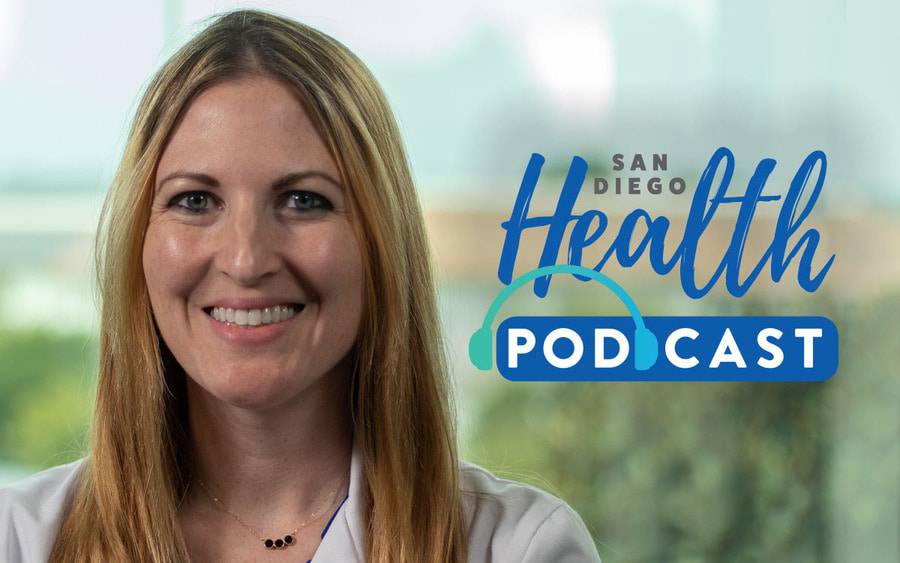What Is the Role of Diet in Preventing and Managing Diabetes? (podcast)
Eating healthy, exercising, can help prevent or manage diabetes

Dr. Samantha Harris, Endocrinology, Scripps Clinic
Eating healthy, exercising, can help prevent or manage diabetes
More than 34 million people in the US have diabetes, meaning their blood sugar is too high; another 88 million have prediabetes, a precursor to diabetes that often goes unnoticed due to the absence of symptoms, according to the Centers for Disease Control and Prevention (CDC.)
Lifestyle changes, like cleaning up your diet, can help people control their diabetes or lower the risk of developing it in the first place.
In this episode of San Diego Health, host Susan Taylor and Samantha Harris, MD, an endocrinologist at Scripps Clinic Del Mar who specializes in diabetes and weight management, discuss the types of diabetes, their causes, and what role diet and exercise play in managing the condition.
Dr. Harris speaks in-depth about how the sugar you get from food and drinks affects the body and how a diet low in refined sugars and carbohydrates can help stave off diabetes.
Listen to the episode on how diet affects diabetes
Listen to the episode on how diet affects diabetes
Podcast highlights
Lightly edited for clarity.
Watch the video on how diet affects diabetes
Watch the San Diego Health video with host Susan Taylor and Dr. Harris discussing how diet affects diabetes and the importance of eating healthy to control your blood sugar level.